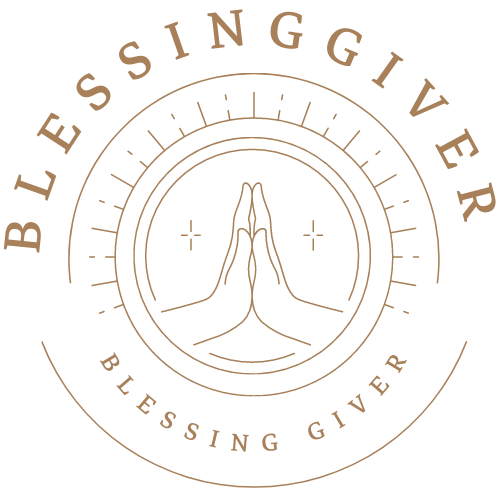Introduction
Defining Beliefs
Beliefs are deeply held convictions, values, or principles that guide our thoughts, emotions, and actions. They shape our perception of reality, influence our choices, and define our relationship with ourselves and the world.
Impact on Individual Behavior
Our beliefs play a crucial role in shaping our behavior. They inform our decisions, motivate our actions, and often become self-fulfilling prophecies.
Connection to Societal Transformation
Beliefs are not merely personal constructs; they have far-reaching implications for society. Changing individual beliefs can create a ripple effect, leading to transformative social change.
Scope and Purpose of the Blog
This blog seeks to explore the connection between beliefs and society, examining how changing our beliefs can transform society. It aligns with the Belief collection, emphasizing empowerment, ethical considerations, and positive social impact.
Beliefs as Social Constructs
Cultural and Historical Roots
Beliefs are often rooted in cultural traditions, historical events, and shared values. They provide a sense of identity, continuity, and meaning, shaping the collective consciousness of a community or society.
Family and Community Influences
Our families and communities play a pivotal role in instilling beliefs. From early childhood, we absorb beliefs about relationships, morality, success, and self-worth, which guide our behavior and interactions.
Education and Media’s Role
Education and media have profound effects on shaping our beliefs. They expose us to diverse viewpoints, societal norms, and global issues, either reinforcing or challenging our existing beliefs.
The Power of Collective Beliefs
Collective beliefs unite people around common values and goals. They drive social movements, shape political ideologies, and foster community cohesion. The shared belief in justice, freedom, or equality can transform societies.
Changing Beliefs and Personal Transformation
Process of Belief Change
Changing beliefs is a complex process that requires self-awareness, reflection, courage, and commitment. It involves identifying limiting beliefs, exploring alternatives, and embracing new perspectives.
Empowerment and Responsibility
Empowering ourselves to change beliefs fosters personal growth and social responsibility. It enables us to align our actions with our values, contribute positively to society, and inspire others.
Tools and Practices
Various tools and practices support belief change, such as mindfulness, counseling, education, and positive affirmation. They help individuals navigate the transformation process with clarity and confidence.
Real-Life Examples and Success Stories
Real-life examples of individuals who have transformed their beliefs, leading to personal success and social impact, offer inspiration and insights. Their stories demonstrate the transformative power of belief change.
The Ripple Effect on Society
From Individual to Community
Changing individual beliefs creates a ripple effect, influencing family, community, and eventually, society at large. Positive belief change can foster compassion, collaboration, innovation, and social harmony.
Positive Change Movements
Movements for positive change, such as environmental sustainability, human rights, or mental health awareness, often begin with changing beliefs. They mobilize collective efforts, create societal shifts, and build lasting impact.
Challenges and Opportunities
Changing beliefs on a societal level presents challenges, such as resistance, polarization, or ethical dilemmas. Yet, the opportunities for growth, unity, and transformation outweigh the obstacles.
Future Implications and Visions
The ongoing exploration of beliefs and society opens doors to future possibilities, innovations, and visions. It invites us to imagine a world where beliefs align with justice, compassion, creativity, and global well-being.
Ethical Considerations in Belief Transformation
Moral and Ethical Boundaries
While the transformation of beliefs holds the potential for positive change, it’s essential to recognize and respect moral and ethical boundaries. Manipulating or imposing beliefs on others can lead to unintended consequences and ethical dilemmas.
Respect for Diversity and Inclusivity
Embracing diversity and inclusivity means acknowledging and respecting varying beliefs within a community or society. It fosters a culture of empathy, collaboration, and mutual understanding, paving the way for collective growth.
Guidance and Support Systems
Ethical belief transformation may require guidance and support from mentors, counselors, or spiritual leaders. These professionals provide insights, ethical considerations, and tools to navigate the complex terrain of belief change.
Conclusion
Summary of Beliefs and Societal Impact
“Beliefs and Society: Can Changing Our Beliefs Transform Society?” has delved into the intricate relationship between individual beliefs and societal transformation. From cultural roots to personal empowerment, from the ripple effect to ethical considerations, the blog has painted a comprehensive picture of this transformative journey.
Reflection on Personal and Social Growth
Reflecting on the insights shared, we see the empowering potential of belief transformation. It invites us to take responsibility for our beliefs, align them with our values, and contribute positively to a more compassionate and just society.
Encouragement for Exploration and Engagement
May this exploration inspire you to examine your beliefs, engage in meaningful dialogue, and embark on a journey of personal and societal transformation. Your beliefs are powerful tools, capable of shaping not only your life but the world around you.


